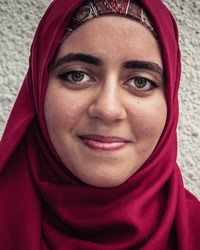Bosniak in Bosnia-Herzegovina

Photo Source:
Michał Huniewicz - Flickr
Creative Commons
|
Send Joshua Project a map of this people group.
|
| People Name: | Bosniak |
| Country: | Bosnia-Herzegovina |
| 10/40 Window: | No |
| Population: | 1,579,000 |
| World Population: | 3,139,000 |
| Primary Language: | Bosnian |
| Primary Religion: | Islam |
| Christian Adherents: | 0.03 % |
| Evangelicals: | 0.03 % |
| Scripture: | Complete Bible |
| Ministry Resources: | Yes |
| Jesus Film: | Yes |
| Audio Recordings: | Yes |
| People Cluster: | Slav, Southern |
| Affinity Bloc: | Eurasian Peoples |
| Progress Level: |
|
Introduction
Bosniaks are typically characterized by their tie to the Bosnian historical region, traditional adherence to Islam and common culture and language. Once spread throughout the regions they inhabited, various instances of ethnic cleansing and genocide have had a tremendous effect on the territorial distribution of their population. Partially due to this, there is a notable Bosniak diaspora in many countries.
Ministry Obstacles
The Bosniaks have experienced much harm over many years from those who have called themselves Christians. Christians need to build loving friendships with the Bosniaks, serving their physical and material needs.
Outreach Ideas
Pray for the Followers of Christ
Pray for the Entire People Group
Pray the Bosniak would understand that Jesus desires to bless their families and communities.
Pray that the Bosniaks would hunger to find out more about Jesus.
Pray the Lord would open their eyes to his true nature and would draw many Bosniaks to himself.
There are a few followers of Christ among the Bosniaks. Pray they would be bold in their witness for Christ, yet loving and tactful.
Pray they would live holy lives, zealous to know and serve Jesus Christ.